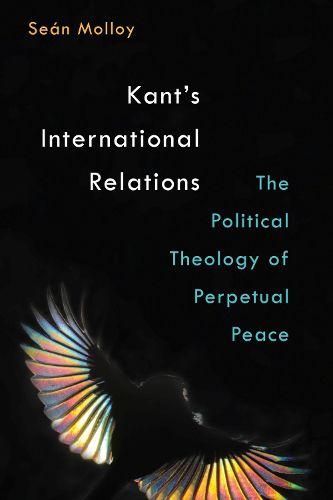Readings Newsletter
Become a Readings Member to make your shopping experience even easier.
Sign in or sign up for free!
You’re not far away from qualifying for FREE standard shipping within Australia
You’ve qualified for FREE standard shipping within Australia
The cart is loading…






Why does Immanuel Kant (1724-1804) consistently invoke God and Providence in his most prominent texts relating to international politics? This question animates this study of one of the preeminent philosophers of modernity. In this wide-ranging study, Sean Molloy proposes that texts such as Idea for a Universal History with Cosmopolitan Intent and Toward Perpetual Peace cannot be fully understood without reference to Kant’s wider philosophical projects, and in particular, the role that belief in God plays within critical philosophy and Kant’s inquiries into anthropology, politics, and theology. The broader view that Molloy provides reveals the political-theological dimensions of Kant’s thought as directly related to his attempts to find a new basis for metaphysics in the sacrifice of knowledge to make room for faith.
This book is certain to generate controversy. Kant has repeatedly been hailed as the greatest of all theorists in the field of International Relations (IR); in particular, he has been acknowledged as the forefather of cosmopolitanism and democratic peace theory. Yet, Molloy charges that this understanding of Kant is based on misinterpretation, neglect of particular texts, and failure to recognize Kant’s ambivalences and ambiguities. Molloy’s return to Kant’s texts forces devotees of cosmopolitanism and other Kantian schools of thought in IR to critically assess their relationship with their supposed forebear: ultimately, they will be compelled either to seek different philosophical origins or to find some way to accommodate the complexity and the decisively theological aspects of Kant’s ideas.
$9.00 standard shipping within Australia
FREE standard shipping within Australia for orders over $100.00
Express & International shipping calculated at checkout
Why does Immanuel Kant (1724-1804) consistently invoke God and Providence in his most prominent texts relating to international politics? This question animates this study of one of the preeminent philosophers of modernity. In this wide-ranging study, Sean Molloy proposes that texts such as Idea for a Universal History with Cosmopolitan Intent and Toward Perpetual Peace cannot be fully understood without reference to Kant’s wider philosophical projects, and in particular, the role that belief in God plays within critical philosophy and Kant’s inquiries into anthropology, politics, and theology. The broader view that Molloy provides reveals the political-theological dimensions of Kant’s thought as directly related to his attempts to find a new basis for metaphysics in the sacrifice of knowledge to make room for faith.
This book is certain to generate controversy. Kant has repeatedly been hailed as the greatest of all theorists in the field of International Relations (IR); in particular, he has been acknowledged as the forefather of cosmopolitanism and democratic peace theory. Yet, Molloy charges that this understanding of Kant is based on misinterpretation, neglect of particular texts, and failure to recognize Kant’s ambivalences and ambiguities. Molloy’s return to Kant’s texts forces devotees of cosmopolitanism and other Kantian schools of thought in IR to critically assess their relationship with their supposed forebear: ultimately, they will be compelled either to seek different philosophical origins or to find some way to accommodate the complexity and the decisively theological aspects of Kant’s ideas.